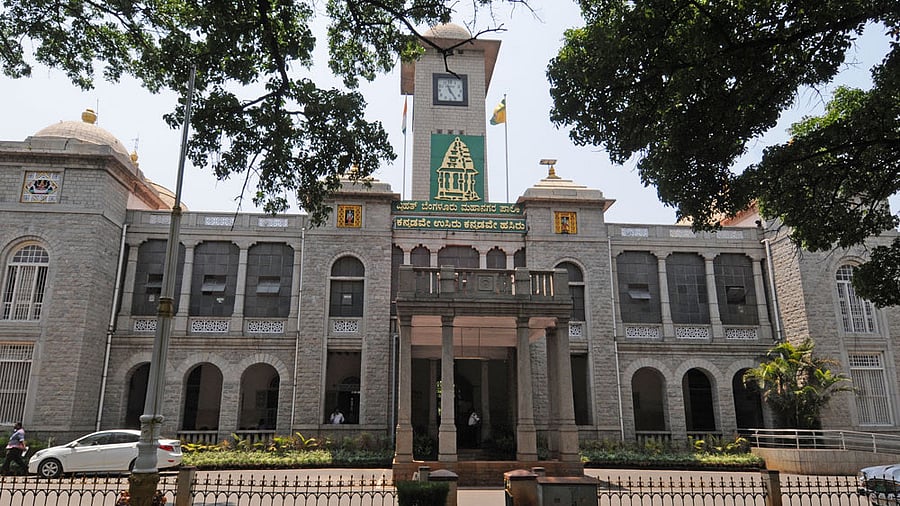
Representative image of a BBMP office.
Credit: DH File Photo
Bengaluru: With Governor Thaawarchand Gehlot giving his assent to the Greater Bengaluru Governance Act, 2024, on Wednesday, the Bruhat Bengaluru Mahanagara Palike (BBMP) will cease to exist at an young age of just 17.
Going forward, the city will have a new apex body to play the role of a coordinator, and not more than seven city corporations within the Greater Bengaluru area, whose boundaries may extend beyond the current BBMP limits.
The Governor’s assent comes exactly 42 days after both Houses of the Karnataka Legislature passed the GBGA Bill, amidst opposition from MLAs of both the BJP and the JD(S). Citizen groups had also raised concerns that the Bill violates the 74th Amendment to the Constitution and could damage Bengaluru’s brand identity.
The Act – notified in the official gazette on Thursday – proposes the formation of three tiers of civic authorities. While the Greater Bengaluru Authority (GBA) will function as the apex body headed by the Chief Minister, there will be smaller municipal corporations at the mid-tier level, and ward committees at the grassroots.
What next
As the BBMP will cease to exist, the Act empowers the state government to declare a larger urban area, including Bengaluru and surrounding regions, as the Greater Bengaluru Area through a notification. Once the territorial boundaries are finalised, the government is expected to delineate the jurisdictions for creating the new corporations and wards.
There is speculation that Bengaluru may be split into three to five corporations, with possible names like Bengaluru South City Corporation, Bengaluru East City Corporation, and Bengaluru North City Corporation.
In terms of financial structure, the GBA will receive grants from both the state and central governments, while the individual corporations will rely on revenues from property tax, advertisement charges, and building approval fees, among other sources. Based on recent budget allocations, the GBA is expected to have an annual budget of Rs 3,000 crore (excluding loan-based funding), while the corporations – if there are three – may individually generate Rs 3,500 to Rs 4,500 crore per annum.
Apart from the Chief Minister, the GBA will include 19 members, mostly from parastatal agencies such as Namma Metro, the traffic police, and BESCOM. Elected representatives, including MPs, MLAs, and MLCs, will also be part of the governing body with voting rights. An IAS officer, not below the rank of Principal Secretary, will serve as the Chief Commissioner.
The Act mandates that the Greater Bengaluru Authority be constituted within four months. It will have the authority to appoint Group A and Group B officers for the corporations, oversee planning functions including the preparation of master plan, and undertake large infrastructure projects that span multiple corporations.
The new Act of 2024 will be the four legislation to govern Bengaluru. While the Karnataka Municipal Corporations (KMC) Act was enacted in 1976, the government introduced the BBMP Act in 2008 by expanding the corporation limits. In 2020, the BJP-led government came up with a new Act and increased the number of wards to 243. The last two attempts had delayed the BBMP elections by two to three years.
“Act violates Constitution; we will approach the court”
Some citizen groups are preparing to approach the High Court, arguing that the Greater Bengaluru Governance Act violates the 74th Amendment to the Constitution.
“We have no views to share on splitting the BBMP into multiple corporations. However, we believe the proposal to form GBA violates the 74th Amendment. It is the municipality that should run the city. Although the Bill claims to promote decentralisation, it actually centralises municipal functions and places city governance under the control of the state government. We are opposed to this provision of the Bill,” said Vijayan Menon, President of Citizens Action Forum.